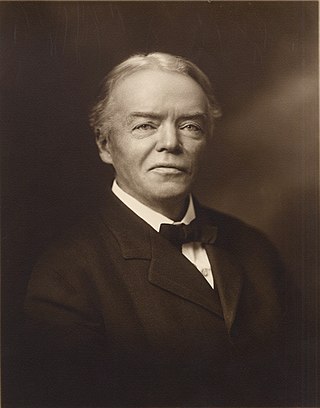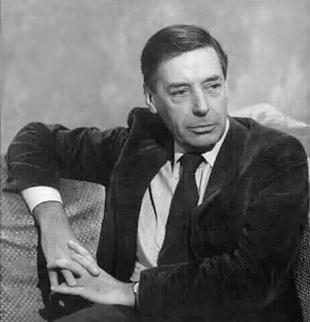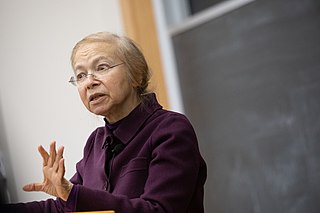Related Research Articles

William James was an American philosopher, psychologist, and the first educator to offer a psychology course in the United States. James is considered to be a leading thinker of the late 19th century, one of the most influential philosophers of the United States, and the "Father of American psychology."
Eudaimonia, sometimes anglicized as eudaemonia or eudemonia, is a Greek word literally translating to the state or condition of 'good spirit', and which is commonly translated as 'happiness' or 'welfare'.

John Henry McDowell, FBA is a South African philosopher, formerly a fellow of University College, Oxford, and now university professor at the University of Pittsburgh. Although he has written on metaphysics, epistemology, ancient philosophy, nature, and meta-ethics, McDowell's most influential work has been in the philosophy of mind and philosophy of language. McDowell was one of three recipients of the 2010 Andrew W. Mellon Foundation's Distinguished Achievement Award, and is a Fellow of both the American Academy of Arts & Sciences and the British Academy.

The is–ought problem, as articulated by the Scottish philosopher and historian David Hume, arises when one makes claims about what ought to be that are based solely on statements about what is. Hume found that there seems to be a significant difference between positive statements and prescriptive or normative statements, and that it is not obvious how one can coherently transition from descriptive statements to prescriptive ones. Hume's law or Hume's guillotine is the thesis that an ethical or judgmental conclusion cannot be inferred from purely descriptive factual statements.

Josiah Royce was an American Pragmatist and objective idealist philosopher and the founder of American idealism. His philosophical ideas included his joining of pragmatism and idealism, his philosophy of loyalty, and his defense of absolutism.

Applied philosophy is a branch of philosophy that studies philosophical problems of practical concern. The topic covers a broad spectrum of issues in environment, medicine, science, engineering, policy, law, politics, economics and education. The term was popularised in 1982 by the founding of the Society for Applied Philosophy by Brenda Almond, and its subsequent journal publication Journal of Applied Philosophy edited by Elizabeth Brake. Methods of applied philosophy are similar to other philosophical methods including questioning, dialectic, critical discussion, rational argument, systematic presentation, thought experiments and logical argumentation.

Sir Bernard Arthur Owen Williams, FBA was an English moral philosopher. His publications include Problems of the Self (1973), Ethics and the Limits of Philosophy (1985), Shame and Necessity (1993), and Truth and Truthfulness (2002). He was knighted in 1999.

Dietrich Richard Alfred von Hildebrand was a German Roman Catholic philosopher and religious writer.
Michael Andrew Smith is an Australian philosopher who teaches at Princeton University. He taught previously at the University of Oxford, Monash University, and was a member of the Philosophy Program at the Research School of Social Sciences, Australian National University. He is the author of a number of important books and articles in moral philosophy. In 2013, he was elected a Fellow of the American Academy of Arts and Sciences.

John Mitchell Finnis is an Australian legal philosopher and jurist specializing in jurisprudence and the philosophy of law. He is an original interpreter of Aristotle and Aquinas, and counts Germain Grisez as a major influence and collaborator. He has made contributions to epistemology, metaphysics, and moral philosophy.

Thomas Michael "Tim" Scanlon, usually cited as T. M. Scanlon, is an American philosopher. At the time of his retirement in 2016, he was the Alford Professor of Natural Religion, Moral Philosophy, and Civil Polity in Harvard University's Department of Philosophy, where he had taught since 1984. He was elected to the American Philosophical Society in 2018.
Robert N. Audi is an American philosopher whose major work has focused on epistemology, ethics, rationality and the theory of action. He is O'Brien Professor of Philosophy at the University of Notre Dame, and previously held a chair in the business school there. His 2005 book, The Good in the Right, updates and strengthens Rossian intuitionism and develops the epistemology of ethics. He has also written important works of political philosophy, particularly on the relationship between church and state. He is a past president of the American Philosophical Association and the Society of Christian Philosophers.

Frances Myrna Kamm is an American philosopher specializing in normative and applied ethics. Kamm is currently the Henry Rutgers University Professor of Philosophy and Distinguished Professor of Philosophy at Rutgers University in New Brunswick, New Jersey. She is also the Littauer Professor of Philosophy and Public Policy Emerita at Harvard University's John F. Kennedy School of Government, as well as Professor Emerita in the Department of Philosophy at New York University.

R. Jay Wallace is Distinguished Professor of Philosophy and William and Trudy Ausfahl Chair at the University of California, Berkeley. His areas of specialization include moral philosophy and philosophy of action. He is most noted for his work on practical reason, moral psychology, and meta-ethics.

Desires are states of mind that are expressed by terms like "wanting", "wishing", "longing" or "craving". A great variety of features is commonly associated with desires. They are seen as propositional attitudes towards conceivable states of affairs. They aim to change the world by representing how the world should be, unlike beliefs, which aim to represent how the world actually is. Desires are closely related to agency: they motivate the agent to realize them. For this to be possible, a desire has to be combined with a belief about which action would realize it. Desires present their objects in a favorable light, as something that appears to be good. Their fulfillment is normally experienced as pleasurable in contrast to the negative experience of failing to do so. Conscious desires are usually accompanied by some form of emotional response. While many researchers roughly agree on these general features, there is significant disagreement about how to define desires, i.e. which of these features are essential and which ones are merely accidental. Action-based theories define desires as structures that incline us toward actions. Pleasure-based theories focus on the tendency of desires to cause pleasure when fulfilled. Value-based theories identify desires with attitudes toward values, like judging or having an appearance that something is good.
Peg O'Connor, is a Professor of Philosophy and Gender, Women, and Sexuality Studies as well as Chair of the Department of Philosophy at Gustavus Adolphus College. Her present research interests include two separate but intersecting strains: Wittgenstein's approach to ethics, and the philosophy of addiction. She also contributes to public discourse about her areas of interest through contributing to popular media, especially around philosophical issues surrounding addiction, and has actively spoken out about issues of gender equity facing the field of philosophy.
Patricia Greenspan is a professor of philosophy at the University of Maryland, College Park. Greenspan works in analytic philosophy of action, and is known for work on rationality, morality, and emotion that helped to create a place for emotion in philosophy of action and ethics.
Sharon Street is a professor of Philosophy and Chair of the Department of Philosophy at New York University. She specializes in metaethics, focusing in particular on how to reconcile our understanding of normativity with a scientific conception of the world.
Kate Alice Manne is an Australian philosopher, associate professor of philosophy at Cornell University, and author. Her work is primarily in feminist philosophy, moral philosophy, and social philosophy.
Humeanism refers to the philosophy of David Hume and to the tradition of thought inspired by him. Hume was an influential Scottish philosopher well known for his empirical approach, which he applied to various fields in philosophy. In the philosophy of science, he is notable for developing the regularity theory of causation, which in its strongest form states that causation is nothing but constant conjunction of certain types of events without any underlying forces responsible for this regularity of conjunction. This is closely connected to his metaphysical thesis that there are no necessary connections between distinct entities. The Humean theory of action defines actions as bodily behavior caused by mental states and processes without the need to refer to an agent responsible for this. The slogan of Hume's theory of practical reason is that "reason is...the slave of the passions". It restricts the sphere of practical reason to instrumental rationality concerning which means to employ to achieve a given end. But it denies reason a direct role regarding which ends to follow. Central to Hume's position in metaethics is the is-ought distinction. It states that is-statements, which concern facts about the natural world, do not imply ought-statements, which are moral or evaluative claims about what should be done or what has value. In philosophy of mind, Hume is well known for his development of the bundle theory of the self. It states that the self is to be understood as a bundle of mental states and not as a substance acting as the bearer of these states, as is the traditional conception. Many of these positions were initially motivated by Hume's empirical outlook. It emphasizes the need to ground one's theories in experience and faults opposing theories for failing to do so. But many philosophers within the Humean tradition have gone beyond these methodological restrictions and have drawn various metaphysical conclusions from Hume's ideas.
References
- ↑ "Prof Valerie Tiberius : Philosophy : University of Minnesota". University of Minnesota. Retrieved 13 December 2013.
- ↑ "Professor Valerie Tiberius - Official Site" . Retrieved 14 November 2022.
- 1 2 3 4 5 6 DesAutels, Peggy. "Valerie Tiberius: November 2013". Highlighted Philosophers. American Philosophical Association. Retrieved 13 December 2013.
- 1 2 3 4 5 6 7 8 Tiberius, Valerie. "Curriculum Vitae" (PDF). University of Minnesota.
- 1 2 Stubbart Wilson, Pamela (20 November 2009). "Valerie Tiberius, The Reflective Life: Living Wisely With Our Limits". The Journal of Value Inquiry. 44 (1): 123–126. doi:10.1007/s10790-009-9193-5. S2CID 189844047.
- ↑ Raibley, Jason (April 1, 2010). "Tiberius, Valerie. The Reflective Life: Living Wisely with Our Limits. Oxford: Oxford University Press, 2008 (Review)". Ethics. doi:10.1086/652490.